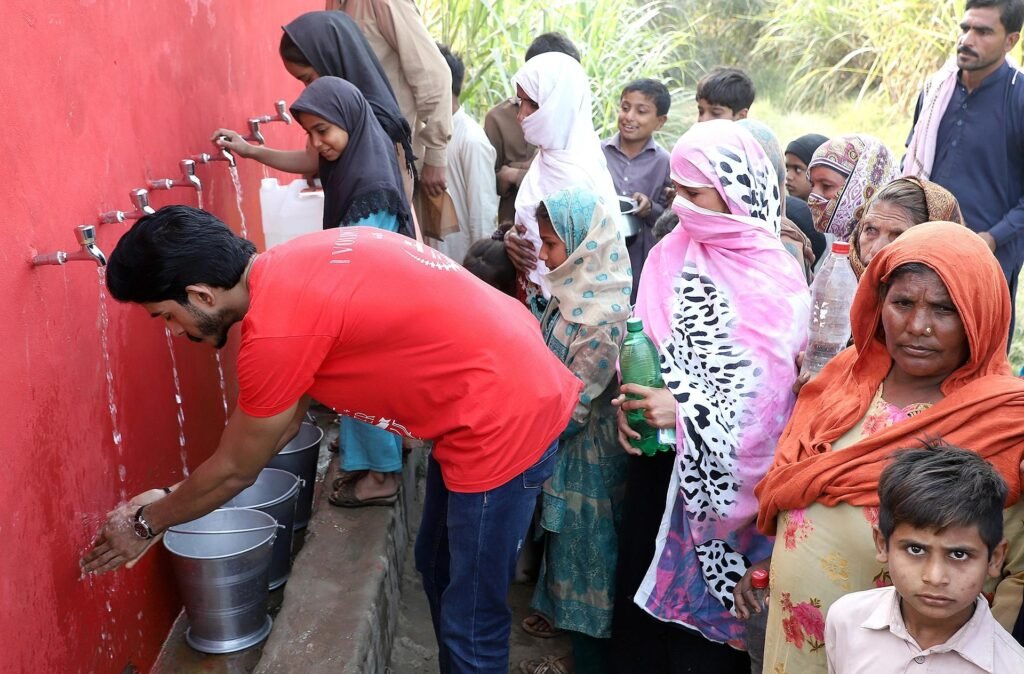
When the well is dry, we learn the worth of water
Kind Cares Foundation, a non-governmental organization, has initiated water filtration projects in rural Pakistan to combat the high rates of waterborne diseases. They have established over 32 water filtration plants, each serving approximately 5,000 people. These plants utilize reverse osmosis technology to ensure the provision of safe drinking water. Additionally, solar-powered filtration plants have been introduced to address energy constraints and promote environmental sustainability.






While the establishment of water filtration plants has improved access to clean water, sustaining these facilities poses significant challenges:
Community Engagement: Effective management of water filtration plants requires active community participation. In some cases, the lack of community involvement in the operation and maintenance of these facilities has led to their decline. Establishing user committees and involving local residents in decision-making processes can enhance the sustainability of these projects.
Operational and Maintenance Issues: In rural areas, many water filtration plants face operational challenges due to inadequate maintenance and lack of technical expertise. For example, in Attock district, Pakistan, several government-installed filtration plants have fallen into disrepair due to poor maintenance and financial constraints. Residents often resort to unsafe water sources, leading to health risks.
Financial Constraints: The costs associated with operating and maintaining water filtration plants, including electricity bills and repair expenses, can be prohibitive for rural communities. Without a sustainable financial model, these plants may become non-functional over time.
Strategies for Improving Rural Water Filtration Initiatives
To enhance the effectiveness and sustainability of water filtration plants in rural areas, the following strategies are recommended:
Integration with Broader Water Management Strategies: Align water filtration initiatives with broader water resource management and sanitation strategies. This integration ensures that water filtration plants are part of a comprehensive approach to improving water quality and public health in rural areas.
Community Participation: Involve local communities in the planning, implementation, and management of water filtration projects. This inclusion fosters a sense of ownership and responsibility, leading to better maintenance and utilization of the facilities.
Capacity Building: Provide training and capacity-building programs for local residents to operate and maintain water filtration plants. This approach ensures that technical expertise is available within the community, reducing reliance on external support.
Sustainable Financing: Develop financial models that ensure the long-term sustainability of water filtration plants. This may include establishing user fees, seeking government subsidies, or partnering with non-governmental organizations for funding and support.
Regular Monitoring and Evaluation: Implement regular monitoring and evaluation mechanisms to assess the performance of water filtration plants. This process helps identify issues promptly and allows for timely interventions to address operational challenges.
